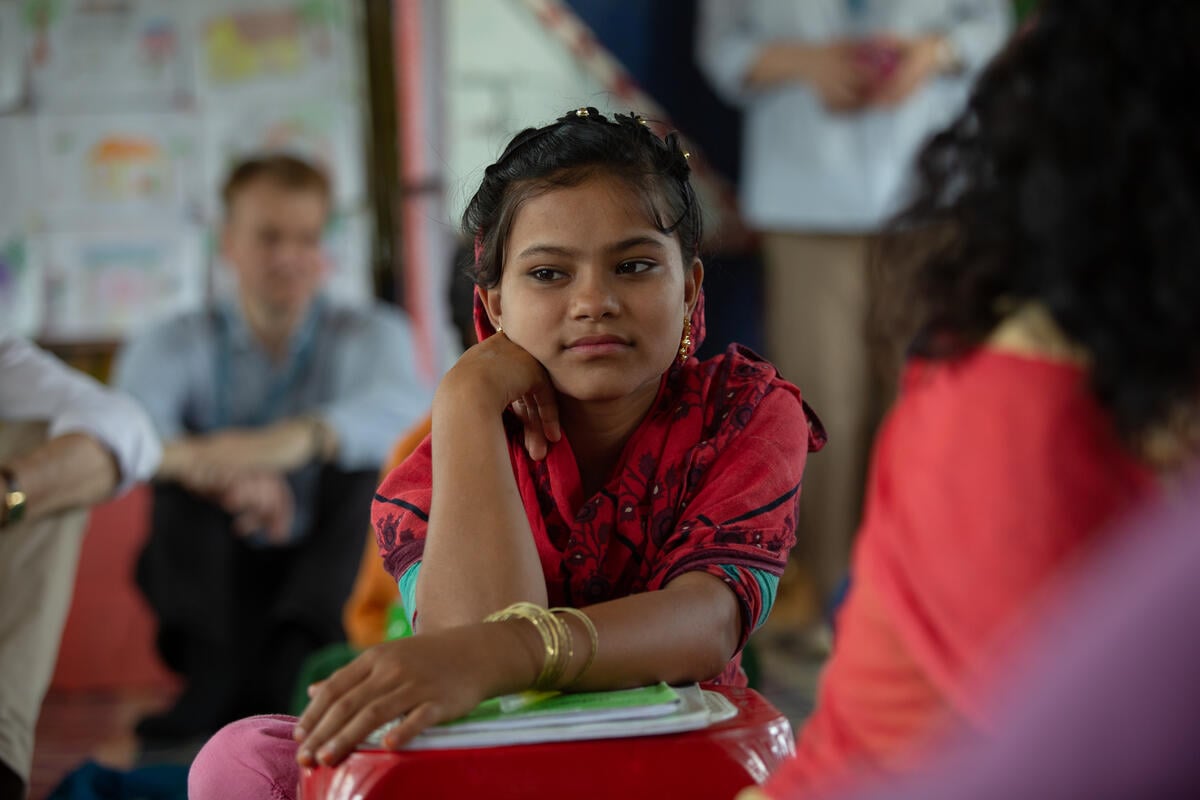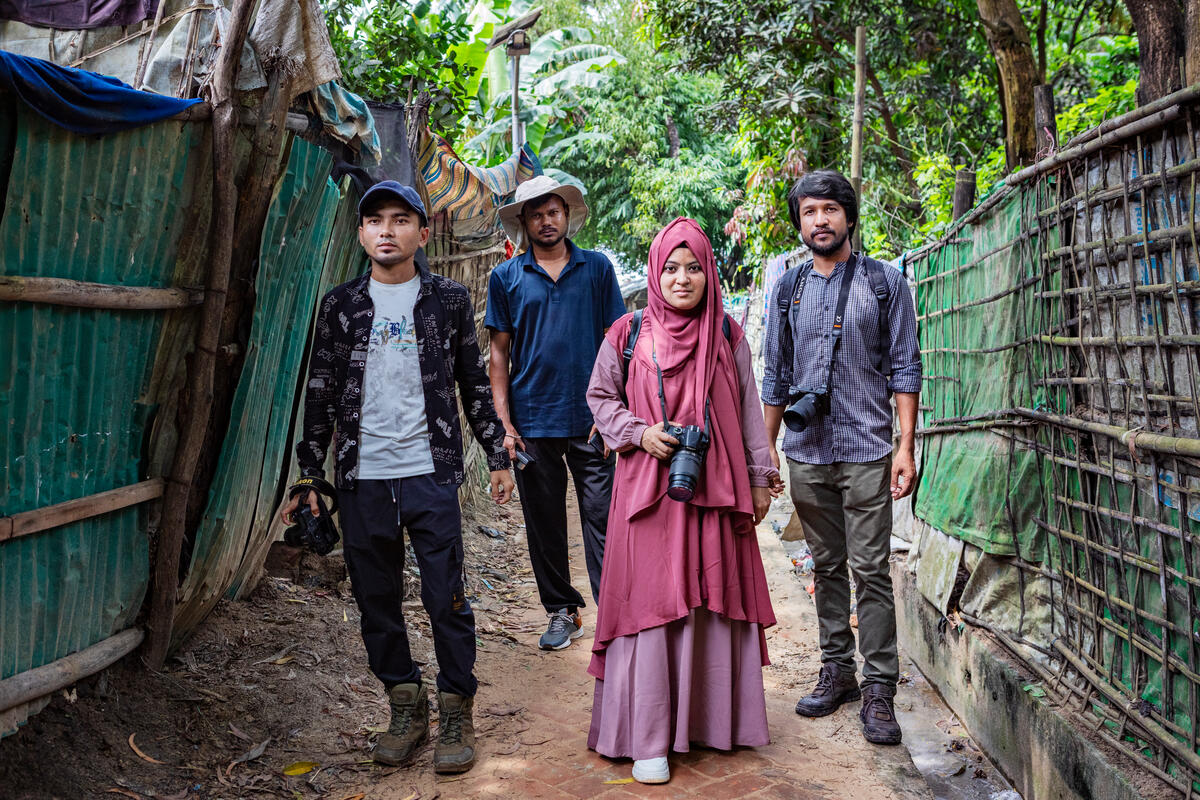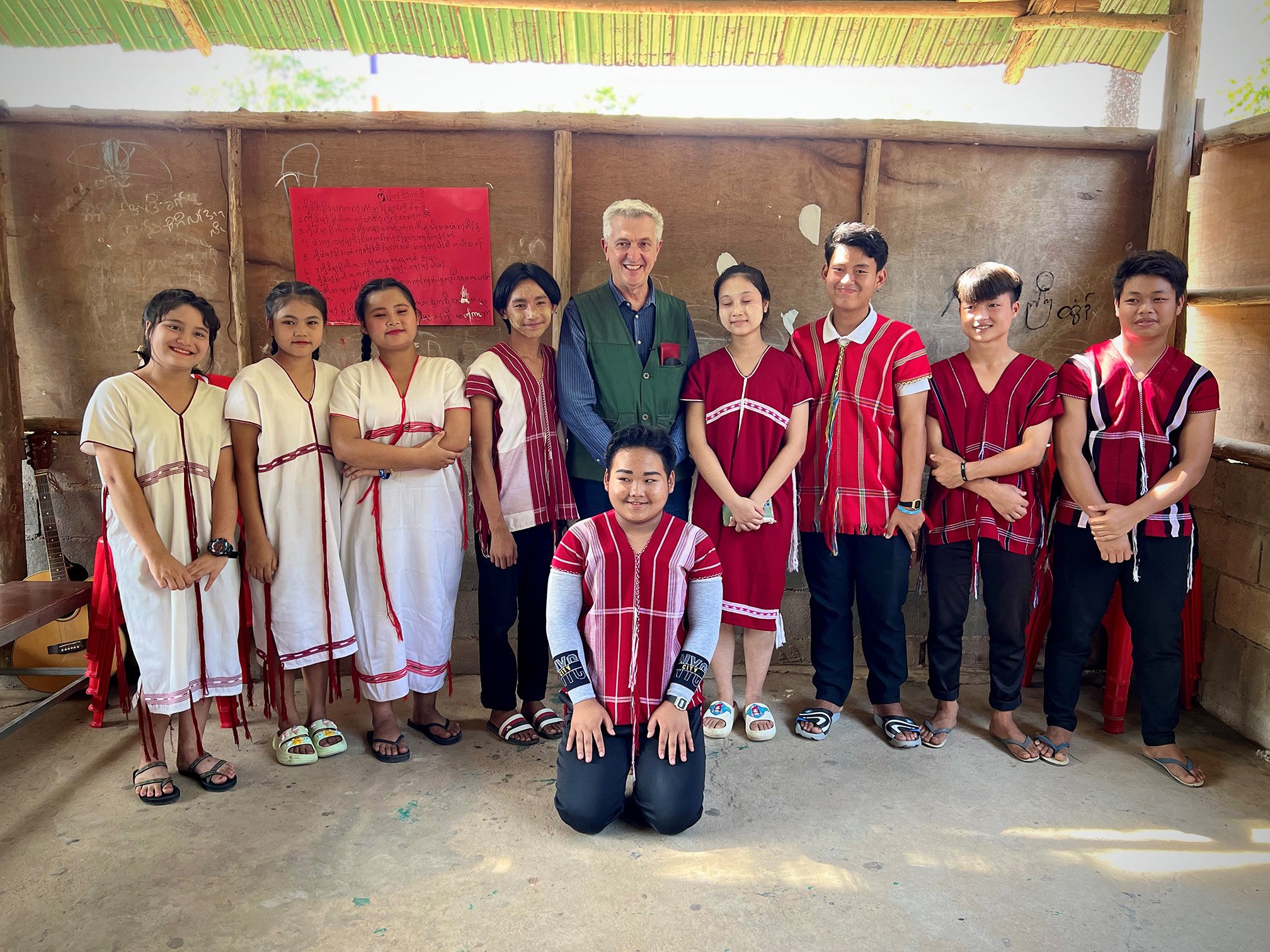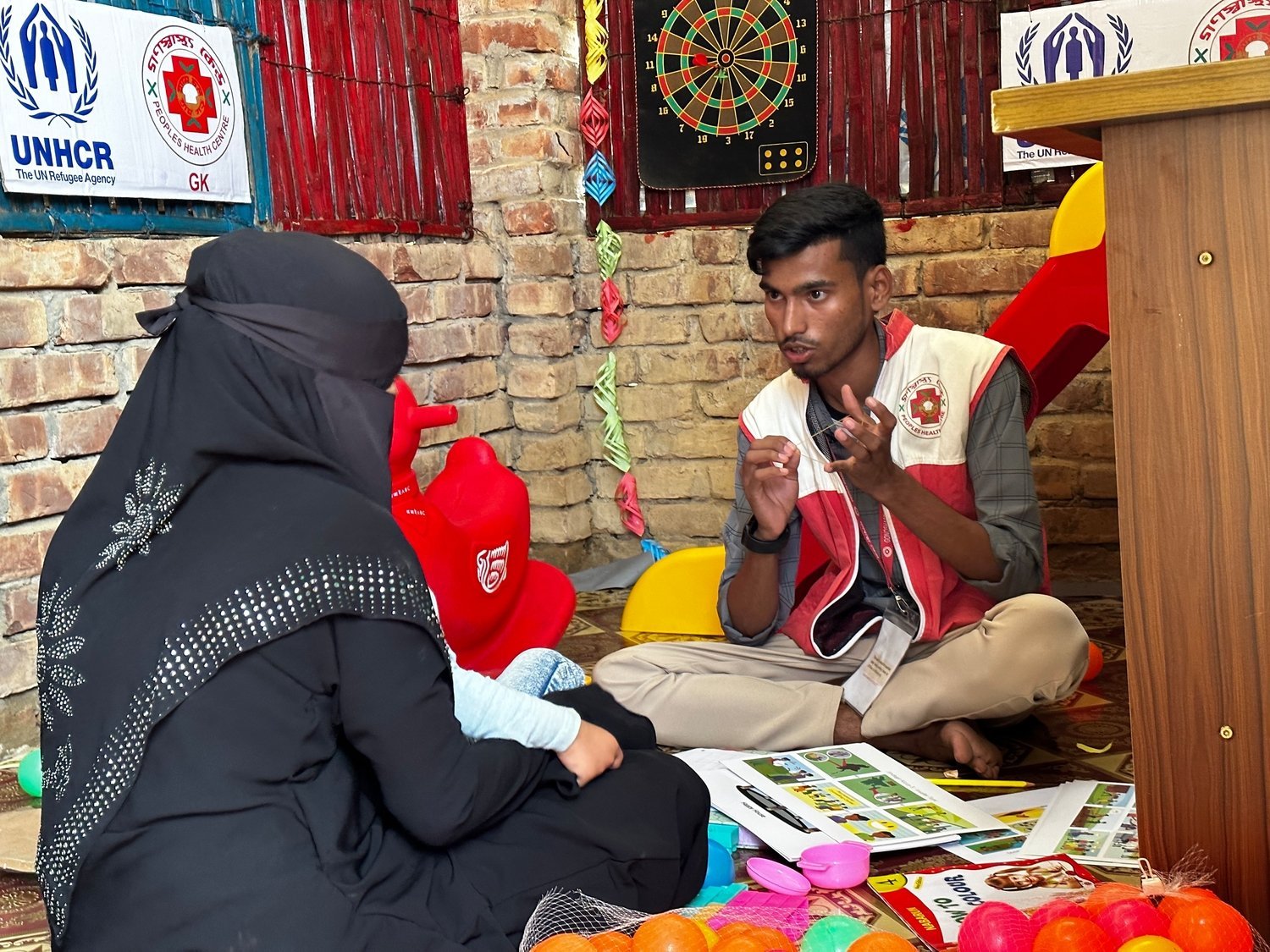Myanmar refugees in Thailand
Myanmar refugees in Thailand
Over the last three months, there has been an influx into Thailand of some 2,000 refugees from Myanmar who say they are fleeing renewed conflict and human rights abuses in Kayin state. Some 400 crossed the border last week and more are expected. The refugees have been arriving at government-run camps, mainly in the Mae Hong Son area in northern Thailand.
The predominantly ethnic Karen refugees say their houses and villages have been burned and civilians killed. Many are very weak and suffering from illnesses such as malaria after a long, dangerous journey to the camps through heavily land-mined areas. Some also report that they had difficulties crossing the Thai border due to strengthened border controls.
UNHCR is expecting more refugees to seek safety in Thailand in the coming weeks. Many of the refugees passed through the "Eh Htu Hta" camp for internally displaced people, IDPs, just on the other side of the border in Myanmar. There, they say, hundreds more displaced Karen villagers are living in desperate conditions. The IDPs are reportedly waiting to see whether conditions in their home areas improve so that they can return. Otherwise, they may try to cross the border into Thailand if the situation deteriorates.
UNHCR is working with the Thai government and non-governmental organisations to ensure that the new arrivals are admitted to the camps and are provided with adequate shelter and protection. Shelter has been a major concern as the capacity in some refugee camps has been overwhelmed. In some camps, refugees have been forced to live in makeshift shelters made of plastic sheeting which can't withstand the heavy rains that affect the area. In a breakthrough last week, the Thai authorities agreed that proper houses will be built to accommodate the new arrivals.
There are currently 140,000 Myanmar refugees living in nine border camps in Thailand, many of them have been there for up to 20 years.









